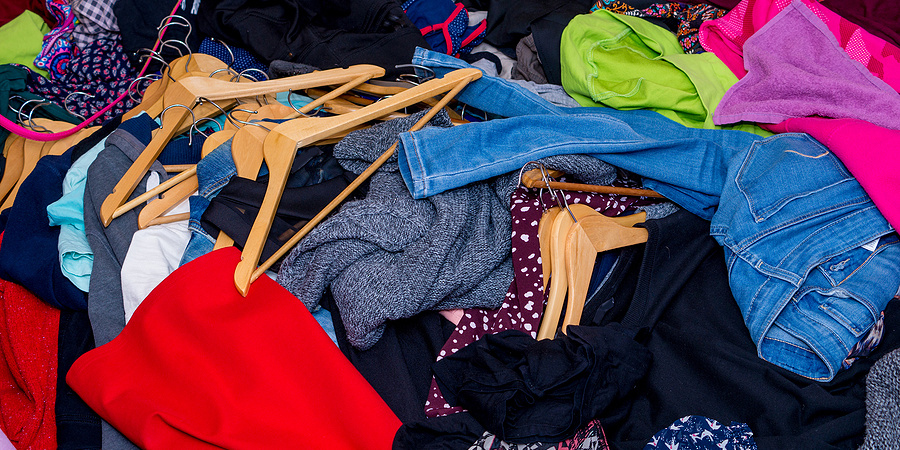Fashion is one of the world’s most wasteful and polluting industries. Will the lockdown trend of ‘make do and mend’ save the environment and our finances too?
Lockdown has changed our shopping habits, particularly when it comes to buying clothes. The past year (and counting) has seen more of us working from home – often not changing out of our pajamas or only dressing our top halves for video meetings.
We are wearing the same items more frequently – in fact most people wear just 20 per cent of their wardrobe. Many of us took up sewing in lockdown, eager to learn a new skill. But as the shops reopen for business, do we really need to return to our old habits?
We’re not suggesting to wear the same jumper every single day but there are plenty of other ways we can shake up our wardrobe without contributing to landfill (and without spending much money)…
Go Secondhand
Donations to charity shops surged during lockdown. If you go rummaging now, you’re likely to pick up something truly unique, at a fraction of its original price. What’s more, many charity shops have opened online stores. Oxfam and British Heart Foundation use eBay’s auction site, while Cancer Research is trialling online sales for younger buyers over the shopping app, Depop. There are also plenty of online vintage and pre-loved stores selling items for cheap. (You can also use these sites to make some extra cash yourself – check out our guide to selling online)
Get Stitching
Inspired by shows like the Great British Sewing Bee, many of us have used the lockdown to start making our own creations. Whether it was face masks or NHS scrubs, the height of the pandemic saw stitching become an essential service. With free online workshops to teach us the basics, It seems many of us have continued with the trend, dabbling in knitting and crochet, with Hobbycraft reporting a 200 per cent rise in online sales during lockdown. Second hand and antique sewing machines have also been in high demand (you can pick one up for as little as £15 at a charity shop – check out British Heart Foundation’s online shop.)
Clothes Banks
Clothing and textiles banks are popping up all over the country. Some are run by charities like the Salvation Army, which runs over 8,000 banks. Everything donated is re-sold, reused or recycled. TRAID have almost double this number of clothing banks – find your local one here.
Lots of high street retailers operate their own clothing banks in-store, including Primark and M&S.
For more tips on how to recycle, reuse, or re-sell unwanted items of clothing (and cash-in at the same time) click here.
Check out next week’s Reader’s Club to find out how you can recycle and save money, on children’s toys.




